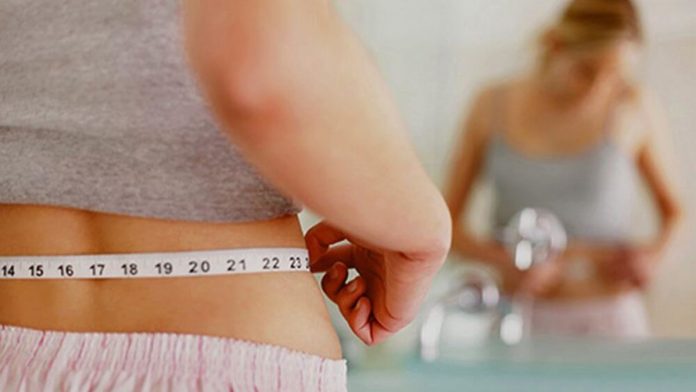This article is written by Hormone Health Associate Nigel Denby.
Few menopause symptoms cause more anguish and distress than weight gain. The ‘spare tyre’ that literally appears from nowhere and won’t go away is a very real phenomenon. It affects most women in menopause and needs a very different approach to any other weight gain you may have previously experienced. One thing is certain though, you absolutely can do something about it, and you can take back control. What’s more, you can do it without any fads, gimmicks, or quick-fix diets.
Why do women gain weight in menopause?
Hormonal, metabolic and social influences come together to create an almost perfect storm for mid-life weight gain.
Oestrogen, the female hormone that gives a female hourglass body shape declines through perimenopause and menopause, resulting in a more filled-out shape – notably around the trunk. Declining oestrogen levels also have a detrimental effect on metabolic rate.
Metabolic rate (how effectively your body burns calories) gently slows through the natural process of ageing for both men and women, and lean muscle loss starts around the age of 35 years. Unless you reduce calorie intake, you gain weight.
Life changes in midlife may also have an impact on your diet and lifestyle. Menopause symptoms which affect mood, confidence and self-esteem can also impact eating, drinking and exercise behaviours.
If all or some of these occur at the same time, it’s highly likely that some weight gain will occur.
What about HRT, does it make you fat?
Despite a lot of women thinking HRT has made them gain weight, there is no clinical evidence to support this theory. Some women may retain fluid with certain types of HRT, but for most women the relief of symptoms with HRT is actually a critical element in helping them make changes to their lives which help with weight loss.
Is menopausal weight gain preventable?
Yes – most definitely – but the only way you can prevent something, is to take action before it happens. And if you don’t know about perimenopause or menopause, let alone menopausal weight gain, you can’t take action. Women need to adjust their exercise, eating and drinking habits before perimenopause even begins to prevent weight gain and most women simply don’t see perimenopause creep up.
Is it possible to lose weight gained during perimenopause and menopause?
We promise you it is, but it’s not the time to be launching into fad diets of any kind. Your body needs good nutrition during the menopause to support good health, particularly bone and heart health. Rather than using an off-the-shelf, one size fits all weight loss diet, we strongly recommend you develop a diet and lifestyle plan you can follow for the rest of your life. The hormonal and metabolic influences which have contributed to menopause weight gain won’t go away, so whatever plan you use to get rid of menopause weight gain needs to be something you can continue long term.
What does a lifestyle plan mean?
Women can expect to live longer than ever before, and while the quality of the years ahead can’t be accurately predicted, they can be heavily influenced. Choosing to eat well, drink moderately, exercise regularly and manage your emotional health efficiently, gives you a much better chance of living an active and fulfilling second half of your life. In fact, many diseases that impact the quality of life for people over 50 years are largely affected by lifestyle choices. Try to see this as an opportunity to bring in new, healthier habits which can have a positive effect on your health and weight.































